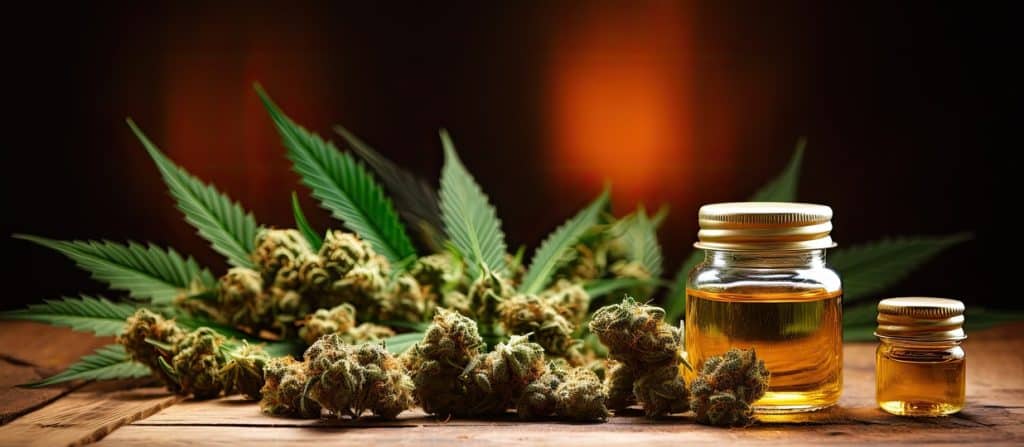
One of our goals here at Utahmarijuana.org is education. We want Utah’s Medical Cannabis patients to know as much as possible about cannabis and medications derived from it. With that in mind, we want to offer this brief reminder about THC, THCA, and the difference between the two compounds. We briefly touched on this topic in a blog post published a few years ago.
As you might already know, THC is the active ingredient in the vast majority of cannabis medicines. It is possible to purchase THC-free products based in state and federally legal CBD. But the products for which a Medical Cannabis card is required in Utah contain THC or, more specifically, delta-9 THC. This differentiation will be important in just a minute.
Different varieties of cannabis plants contain a wide range of cannabinoids and terpenes. At last count, there were more than a hundred such compounds found organically in cannabis plant material. THCA is just one of them; CBDA is another.
THCA is known scientifically as tetrahydrocannabinolic acid. In its natural state, it doesn’t have a lot to offer in terms of medical benefits – at least based on what we know right now. In order to derive any such benefit from it, THCA needs to be converted to THC. And what is the best way to do that? By applying heat.
Heat causes THCA to give up its carboxyl group (the acid). Here in Utah, Medical Cannabis processors extract all the cannabinoids and terpenes they can from plant material. They apply heat and distillation to separate the compounds. A byproduct is decarboxylation, the process of transforming THCA into THC through the application of heat.
In its natural form, THCA will not get you high. It does not have any psychoactive effects. Unfortunately, THCA doesn’t appear to help much with the chronic conditions most often associated with Medical Cannabis. On the other hand, THC does help.
THC begins its life as THCA. But following decarboxylation, it has the psychoactive and medicinal effects Medical Cannabis patients are after. THC can be combined with other cannabinoids and a selection of terpenes to offer defined medical benefits.
Incidentally, what applies to THC and THCA also applies to CBD and CBDA. The latter occurs naturally in cannabis plants. To get from CBDA to CBD, decarboxylation is necessary. Heat and distillation are once again the primary processes by which this happens.
The professionals that run our clinics are frequently asked about THCA’s legal status. The answer to that question depends on who you ask. On one side of the coin is those who hold strictly to the language of the 2018 Farm Bill in insisting that THCA is legal.
According to their reasoning, the only cannabis-related substance banned by the Controlled Substances Act (CSA) is delta-9 THC. Because THCA has not yet been decarboxylated, it does not qualify as delta-9.
On the other hand, the Drug Enforcement Agency (DEA) insists that it retains control over any and all compounds derived from cannabis. In their estimation, THCA is included on Schedule I of the CSA. Therefore, they still consider it illegal. We like The Cannigma’s take on the matter: THCA occupies a gray area of the law. It is best to approach it with caution.
Here in Utah, THCA is not something we talk a lot about in the Medical Cannabis realm. We may have to start talking about it at some point in the future. It is out there, and it may have some medical benefits attached to it.